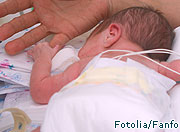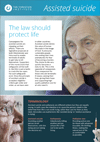The Republic of Ireland’s Government has launched a staunch defence of the nation’s anti-abortion law in the European Court of Human Rights following a legal challenge by three women.
The women lodged their case with the Court in 2005 claiming that the nation’s ban on abortion violated their health and human rights.
Attorney General Paul Gallagher SC labelled the legal case a “significant attack” on the Irish health system.
He told the court: “The right to life of the unborn is based on profound moral values deeply embedded in the fabric of Irish society”.
All three women travelled to the UK to have abortions after unintentionally becoming pregnant and claim to have experienced medical complications upon their return to Ireland.
Abortion is currently illegal in Ireland unless the life of the mother is in danger.
A court decision in favour of the women could force a change to weaken the law.
However, pro-life groups in the Republic of Ireland have said that a constitutional change would be needed to overturn the current law on abortion.
The constitution currently states: “The State acknowledges the right to life of the unborn and, with due regard to the equal right to life of the mother, guarantees in its laws to respect and, as far as practicable, by its laws to defend and vindicate that right.”
The Irish Government’s case is being supported by the Society for the Protection of Unborn Children and the European Centre for Law and Justice.
Critics have warned that a decision against Ireland would represent a infringement of Ireland’s ability to decide its own laws.
Johanna Higgins of the Association of Catholic Lawyers of Ireland said: “Whatever the human rights aspects are of this, abortion is illegal in Ireland because it is a criminal offence”.
She added: “If I were in any country and this were to go against Ireland, I would be very concerned that the Europeans feel they can step into domestic law.”
The case is being heard by the European Court’s 17 judge Grand Chamber in Strasbourg,
The European Court of Human Rights judges human rights issues among the 47 member states of the Council of Europe.
The ruling is expected next year.


